The mission of The Alliance of Independent Authors is to foster ethics and excellence in self-publishing, and the information in this post reflects our internal policies and external recommendations related to generative artificial intelligence. We provide this document to inform our own efforts, and we share it publicly for reference and use by authors everywhere.
ALLi continuously monitors the state of AI and assesses our position based on ongoing interactions with our members, our Advisors, the ALLi Watchdog Desk, and our fellow author-supporting organizations. ALLi continually updates this information to reflect the rapidly evolving AI landscape. We gather AI-related information in our blog here, and you can keep up to the minute with weekly news updates on the Self-Publishing with ALLi podcast.
ALLi wants to provide authors with the information and resources to enable them to make informed decisions for their own writing and publishing work.
- In the first part of this post, we will address the responsibility of the AI developers: Clarity, Consent, and Compensation.
- In the second part of this post, we will address the responsibility of indie authors: Creativity and Curiosity.
Defining the Terminology
By generative AI, we mean artificial intelligence systems designed to create new content—such as text, images, audio, or video—based on patterns learned from existing data. This AI-generated content is created with little to no human intervention. For example, if an AI tool writes a chapter or generates images without significant editing or input from the author, this content would be considered AI-generated or AI-created.
AI-assisted content (sometimes referred to as augmented intelligence) is content where an author uses AI as a tool but where the final output is significantly shaped by human intervention. For instance, in the creation of book content, an author might use AI to brainstorm plot ideas or generate rough drafts, but then heavily revise, rewrite, or edit the content themselves.
We will be considering both AI-created and AI-assisted content in this article.
This article does not address more basic forms of machine intelligence, such as word processing spell checkers or grammar checkers. It also does not include tools using “narrow AI,” where computers provide support based on specific expertise in a particular area: advertising algorithms, reader analysis and engagement, search and sales engines, and speech-to-text.
The Responsibilities of the AI Developers
Let’s first examine the aspects that ALLi considers to be the responsibility of AI developers: Clarity, Consent, and Compensation.
Clarity
AI developers must provide clarity and transparency about how their AI models are trained.
Organizations developing AI tools should be required to maintain a log of what material has been used, accessible on request or made publicly available. For example, some AI developers have purchased print copies of books, scanned their contents, and used that content to train their AI models; a registry of this use should be publicly available. (AI developers have also been found to have used pirated works for training, and this use was deemed illegal by a U.S. court in June 2025. Click here for more information.)
When an AI tool references an online source, it should provide links to source data, which enables users to assess the relevance and reliability of those sources and to validate the AI’s output. Such links also acknowledge the contributions of the creators of the source material.
Clarity is also needed in the laws and guidelines related to content. For example, if an author unintentionally infringes on another author’s copyright by using output from an AI and not checking its sources, who is responsible for that infringement–the author or the AI? Such rulings will likely vary from country to country; providing clarity around such situations will protect indie authors from unintended violations.
Clarity actually extends beyond the AI developers to organizations or individuals who use their tools. Those who use AI as input to significant decisions—for example, to assess quality of work for awards, eligibility for economic benefits from grants, or an individual’s qualification for appointment to a role—should divulge this use. In addition, those affected by such decisions must have a simple way to request a human review within a reasonable timeframe.
What is ALLi doing?
ALLi constantly tracks the performance of AI developers against the goal of clarity and informs our members and other indie authors of how they are and are not delivering on this goal.
Consent
A clear process is needed for obtaining consent from creators for use of their material.
Users should be able to opt out of having their work used to train AI tools. This is especially vital for authors, since there are many uses of AI that would require an author to input works in progress, synopses, plot ideas, blurbs, etc. AI platform agreements should include a commitment to the confidentiality of such data.
Publishers should include clauses in their contracts with their authors that require active consent for an author's works to be used in training AI. Contracts should also describe the terms by which derivative works based on an author’s IP can be used—for example, to create translations or audio narration.
What is ALLi doing?
AI companies are profiting from our words without permission, and we have updated ALLi’s Copyright Bill of Rights to include information related to AI about authors' rights and responsibilities under copyright law. (Also check out our podcast episode about the Bill of Rights.)
Compensation
The theoretical protections of copyright, which can only be held by humans, are being violated by the companies developing AI tools, who have offered no licensing payment for the use of the material used to train the AI. But how might compensation work, especially across the huge number of impacted creators?
If Big Tech can pay Big Content, they can pay indie authors, too.
The voluntary license model that is already used for secondary uses / rights and the fees that are collected and distributed to authors by existing Collective Management Organizations (CMOs) such as the UK’s ALCS or the US’s ASCAP, could provide a model. Models also need to reflect that once data is ingested into an AI system, it will be used repeatedly.
When a compensation system is established, it should handle both payments from that point onward as well as a one-time retrospective payment for past use. (Since data cannot be removed from an AI tool, consent cannot be withdrawn for data already included in the database.)
Solutions addressing issues related to both consent and compensation must be implementable across borders; otherwise creators risk falling through the net of IP protections.
What is ALLi doing?
ALLi campaigns for and supports legal decisions that are not specific to one country and that smoothly link into laws and policies internationally. We also participate in actions being taken by other author-supporting organizations specific to developing guidelines and processes related to compensation.
The Opportunities for Indie Authors
ALLi has long held that the job of the independent author is to write great words, publish great books, and bring those books to the readers who will value them most. Generative AI tools can be transformative for all three of those goals, but their use also raises many practical, ethical, and creative questions.
ALLi supports the use of AI as a tool for ethical creators, not as a creator itself. Much of the discussion to date in the author community has focused on the writing part of our jobs. And while AI tools can generate words, the idea of using them for this purpose has been deeply divisive. But AI also offers great tools for the other two goals of an indie author: publishing great books and bringing those books to the readers who will value them the most.
Most indie authors are not anti-tech—we’re pro-creative and pro-ethics.
Creativity
If you’re on the fence about using AI for your publishing business, consider this—in what areas might your fans and followers feel cheated if they knew someone else was creating that work? Your books? Very likely. The sales description that appears on retail sites? Probably not. Readers understand that authors don’t necessarily write those descriptions for their own books; traditional publishers have a team of marketing copywriters to craft sales descriptions, while indie authors might contract with a service that specializes in this.
And if the readers are okay with you having a service write your retail site sales descriptions, would they balk at the idea that you used a technical tool to brainstorm this content? We think not.
This “will my fans care” test can open the way to exploration of ways indie authors can use AI in other aspects of their publishing business, including brainstorming the pros and cons of various production and distribution approaches, creating promotion and marketing content, and even exploring what opportunities might be available for selective rights licensing. This is where your creativity comes in—using AI for this type of work isn’t an abdication of your creativity, it’s harnessing the power of an incredibly useful tool to boost your creativity.
AI tools can open opportunities for both authors and readers. For example, AI narration provides audio content at a fraction of the cost of human narration, making it financially feasible for authors earlier in their careers and creating far more content for visually impaired readers than would be possible with a reliance on human narrators alone. AI-generated book covers, audiobooks, and translations can put indie publishing within financial reach of authors with a limited budget.
How might an author use AI ethically in their indie publishing business?
- World-building bibles – Auto-generate character/setting cards from your notes.
- Research & fact-checking – Ask an AI search tool for peer-reviewed sources, pull citations, warn of outdated references.
- Accessibility & drafting flow – Real-time speech-to-text lets you dictate chapters on a walk, while multilingual translation previews help bilingual beta-readers.
- Rights & metadata admin – Auto-fill BISAC codes, keywords, and series metadata; check retailer requirements before upload.
- Affordable audio – Clone (and license) your own voice or choose a pro narrator style; generate cuts you can fine-tune instead of booking studio time.
- Visual assets & covers – Prompt-based concept art gives you a starting mood board; a human designer then refines typography and layout.
- Marketing & reader analytics – AI analyzes blurbs, pricing, and ad copy, A/B-tests variants, and predicts which newsletter subject line will get opens.
Curiosity
Even if you feel uncertain or cautious about AI in the creative space, we encourage indie authors to approach it with curiosity; not to adopt it uncritically, but to understand how it works, what it offers, and where its limits lie, so you can make informed choices that align with your own values and practice.
We also encourage all authors to create their own AI policies for their publishing businesses and to revisit and update them as the situation around AI evolves. We believe that indie authors, like AI developers, have a responsibility for clarity: being transparent about their use of AI for content creation, for example, in a note on the copyright page. We at ALLi strive to be transparent in our own use of AI; click here for ALLi’s AI Internal Use Policy.
The answers to how AI will impact authors range from apocalyptic to utopian, and as with most new technological breakthroughs, the reality will likely fall between these extremes. ALLi's policy is to encourage the best options, campaign against the worst, and support our author members in making informed decisions.
What Can You Do?
Often, actions undertaken by organizations can be more effective than actions undertaken by individuals, and we encourage authors to engage with ALLi on topics related to AI, either as an ALLi member or via our resources at https://selfpublishingadvice.org/, which are available to all authors.
But we also want to support you in the actions you may want to take to express your views on AI to the reader, writer, and technology communities.
Ethical Author Program
As part of our ethical self-publishing campaign, the Alliance of Independent Authors runs an ethical author program. This program provides a code of conduct for authors to follow in relation to author ethics. The code is voluntary and is additional to the required Code of Standards signed up to by ALLi members. Any author, regardless of publication method or membership, can sign up to this code, once they agree to the guiding principles.
The ethical author code has for some years included a clause related to AI:
I declare use of AI and other tools where appropriate. I edit and curate the output of any generative text tool I use to ensure the text is not discriminatory, libelous, an infringement of copyright, or otherwise illegal or illicit. I recognize that it is my job, not the job of the AI tool or service I use, to ensure I am legally compliant.
ALLi’s Answers to Your AI FAQs
Will AI make writers defunct?
No. Humans have agency and intelligence, which, despite its name, AI does not. We are driven to create, and we want to connect with other humans. AI tools won’t change those fundamental drives, but it will change how society values certain kinds of writing and writers, and how writers connect with readers, in ways that are as yet unforeseeable. Right now, AI tools are being used by creators to help bring their ideas to fruition, often cutting out the most tedious parts of the job or allowing for more creative solutions.
Won’t AI result in the production of many more books, leading to market saturation?
Yes but the market is already saturated. There are already far more books available than any reader can read (as well as movies, TV shows, games, and other forms of entertainment). Yet we still write books, and readers still seek them. In fact, AI tools with increasingly sophisticated recommendation algorithms are actually aiding book discoverability.
Readers know how to find what they love to read and love to make choices that support human creators. As AI tools improve, authors have to double down on being human. How? By finding the value in what we offer and then doing that more: more often, more intentionally, more liberally.
The publishing future, like the publishing past, belongs to those who can engage readers and stand out with a unique and identifiable voice—not those pushing a punishing, cookie-cutter productivity model that cannot outpace the machines, or those trying to pass off machine-generated work as their own.
What are examples of using AI unethically as an author?
Some examples might be:
-
Passing unedited AI-created text off as original work: Copying and pasting AI-generated content without reviewing, adapting, or meaningfully shaping it, then presenting it as wholly your own writing.
-
Failing to check accuracy or originality: Publishing AI-assisted content without verifying facts, quotations, or sources, especially where errors, hallucinations, or unoriginal phrasing may mislead readers.
-
Using AI trained on copyrighted material without due care: Relying on AI outputs that closely mimic the voice, structure, or distinctive style of a living author or specific copyrighted work, rather than using AI as a general drafting or ideation aid.
-
Misrepresenting authorship to readers or collaborators: Claiming a book, article, or submission was written entirely by a human when AI played a substantial role, particularly where transparency is expected (such as competitions, grants, or editorial submissions).
What should I do instead?
AI tools can be used for idea, character, and story generation as well as text generation. It is your job as an ethical author to edit and curate the words generated by a tool you've prompted.
If you use text generated by an AI tool, run the final work through a plagiarism checker to ensure you have not unwittingly infringed someone's copyright. ProWritingAid and Grammarly both have plagiarism checkers.
Should I declare my use of AI tools?
While authors are not legally required to declare the use of AI in their works, we encourage transparency regarding AI use. This recommendation aligns with ALLi's broader commitment to ethical publishing practices. Amazon KDP and other platforms ask authors to indicate whether any part of their book was generated by AI when they upload their manuscripts. This includes text and images and requires authors to disclose whether their content is AI-generated or AI-assisted.
The disclosure is intended to help Amazon manage the quality and originality of the content available on its platform, as well as to address potential legal issues related to copyright and intellectual property.
What effect does AI have on the environment?
ALLi recognises that artificial intelligence has an environmental footprint, particularly at the level of large-scale infrastructure, model training, and energy-intensive applications. We take these impacts seriously and support evidence-based discussion about where and how AI systems consume resources.
We aim to provide authors with proportional context, distinguishing between high-energy industrial uses and the relatively low-impact, text-based tools most commonly encountered in writing and publishing. Our role is to help authors stay informed, not to overstate risks or understate responsibility, but to understand where meaningful environmental impact sits and make decisions accordingly.
How can I make the most out of AI as a creative business owner?
You likely use a computer as well as, if not instead of, handwriting your drafts. You probably use email more than snail mail, a cell phone rather than a landline, video streaming rather than DVDs. Using affordable AI tools that aid your creative and business processes is similar.
Ask three core questions:
- Which of my writing and publishing challenges can be met by AI solutions?
- Which AI tools do I want to implement in my writing and publishing?
- Which AI tools do I not want to implement in my writing and publishing?
Stay curious. Investigate the tools rather than making assumptions.
How can I set my work apart from AI-generated work?
Two ALLi members, Kari Lineberry and Dana Chandler, came together as KD Resources to trademark a “Human Created Symbol of Distinction” that “signifies that the owner of the work attests that no Artificial Intelligence (AI) was used to write or create any portion of the work.”
There is one thing that AI, and indeed other authors, can never do: be you. Specialize in giving your writing your particular stamp. In your writing, communicate from your deepest experience, using your own voice, telling your own truths. In your publishing, focus on local, imperfect, real connections with other human beings: your readers and the authors in your niche whose work you most admire. Think about incorporating audio and video, where you cannot help but reveal yourself, into your marketing.
However you do it, be personal, be honest, be authentically you. Personality, values, personal branding: these become ever more key, as does true human connection with your readers.
Resources
The AI landscape is changing week-by-week, and sometimes day-by-day, and this is your source for the latest information ALLi has to share on this topic, as well as educational resources to spur your curiosity about this new tool. You’ll find more information at our Self-Publishing Advice Center, which now includes a distinct AI category.
Blog Posts & Podcasts
Joanna Penn: List of AI writing tools (regularly updated). This is a list of growing AI tools that you can use to help you generate a variety of different types of writing from prose, inspiration and prompts for your own prose, poetry, marketing copy and more. See also: 9 Ways That Artificial Intelligence (AI) Will Disrupt Authors And The Publishing Industry and Joanna's interviews with authors using AI tools:
Cowriting with Artificial Intelligence with Yudhanjaya Wijeratne
The AI-Augmented Author. Writing With GPT-3 With Paul Bellow
Monica Dube: How Can Writers and Publishers Utilize Artificial Intelligence Blog post from PublishDrive
Holly Payne: AI and Book Discovery: SelfPubCon (Self Publishing Advice Conference) session where Holly Payne introduces AI as a book discovery and author comparison tool.
Books
Chase, Calum. The Economic Singularity: Artificial intelligence and the Death of Capitalism – Argues that Universal Basic Income is only part of the solution to how we'll manage a world where AI and other tools do most of the work. We are probably going to need an entirely new economic system. You may not agree with everything in this book but you will certainly be given food for thought.
Davenport, Thomas and and Kirby, Julia. Only Humans Need Apply: Winners and Losers in the Age of Smart Machines – The authors reframe the conversation about automation, arguing that the future of increased productivity and business success isn't either human or machine. It's both. The key is augmentation, utilizing technology to help humans work better, smarter, and faster.
Google: The People + AI Guidebook – Tools methods and best practice guidelines for those developing AI products in a human-centered way. Originally launched in 2019, now updated with new insights, offering a set of methods, best practices, and examples for designing with AI.
Lee, Kai-Fu: AI Superpowers – Taiwan-born Kai-Fu Lee believes China will be the next tech-innovation superpower and in his new (and first) book, AI Superpowers: China, Silicon Valley, and the New World Order, he explains why.
Penn, Joanna. Artificial Intelligence, Blockchain, and Virtual Worlds: The Impact of Converging Technologies On Authors and the Publishing Industry – How authors and publishers can embrace the opportunities and engage in conversations around AI in ways that positively direct the reinvention of our industry. Clear, practical and eye-opening. The must-read book for authors and publishers.
Tegmark, Max. Life 3.0: Being Human in the Age of Artificial Intelligence
A rich and visionary exploration of whether AI will eventually outsmart humans and replace us altogether or help life on earth flourish as never before.

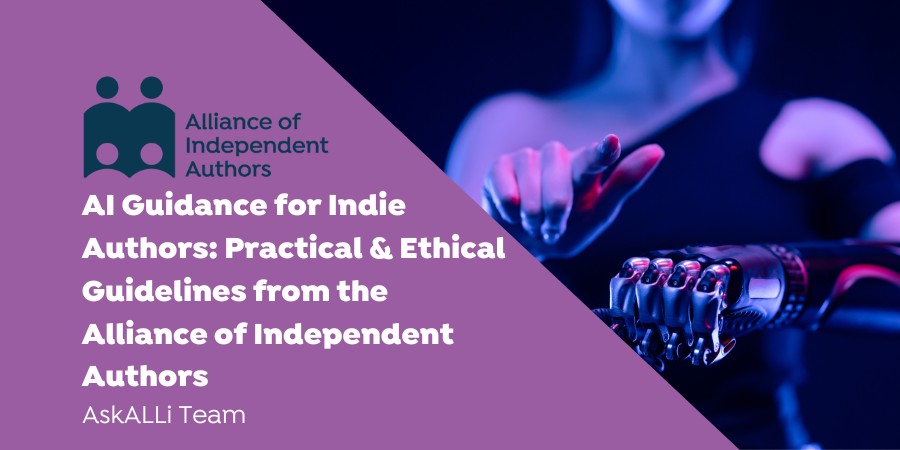
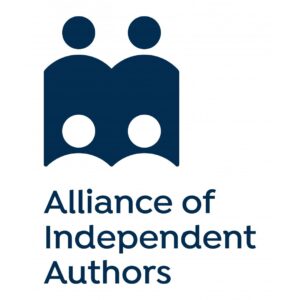
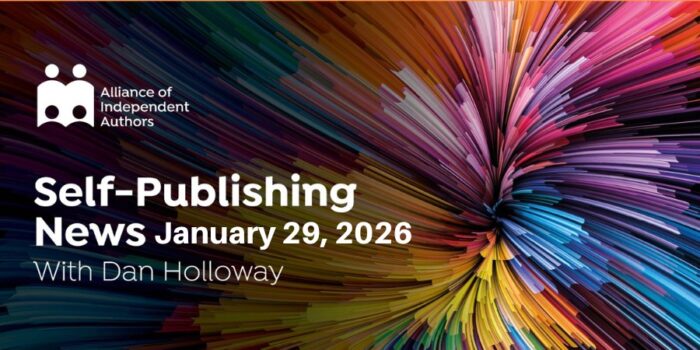
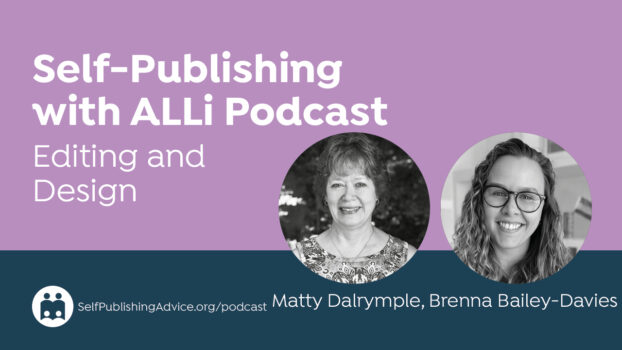
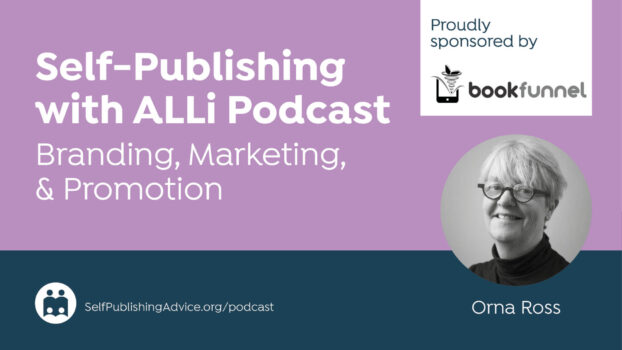
This article is carefully crafted but I feel that the big picture is pretty simple. Cannot control AI safety nor the ethics or criminality of people crafting or using AI. If creators do not uphold the sanctity and uniqueness of human experience, and, resist the beguilement of helpful AI we are going to see human input downgraded in every way.
I just watched some ‘Diary of a CEO’ interviews on youtube. The experts trying to create safe AI are now saying safety is impossible and we will be overrun within several years. The comments sections though are most impactful: real people who have been graphic designers, voice-over artists, illustrators, and musicians in all areas are being put out of work. AI imitations of creativity are cheaper and faster without having to deal with human annoyances or contracts. I also read a study done where people actually preferred machines’ emotional music cues over human.
There is also a recent Sept’25 Australian youtube “The moment you see your life’s work generated by AI in seconds” that covers several creative industries and at the 12′ mark there’s a section on authors.
I think, right now,
Human editors and all author supports must uphold the human connection their services provide with an absolute belief in human specialness else become part of the 99% being replaced by machines, with us relying on people who are only consuming at whim and not caring who did what.
Yeah, still write good words. Of course.
ALLi’s ethical AI guidelines strike the right balance—empowering authors with tech while fiercely protecting human creativity’s irreplaceable value
I had a sad laugh reading another “AI isn’t so bad” article. Writers and artists are being replaced by AI users who don’t play by ethical rules. I’m trying to protect my work with outdated methods while others use aggressive tactics and adapt quickly.
I’ve abandoned dreams of writing professionally, creating for joy instead. If my work gets noticed, someone tech-savvier will probably profit before I do.
What creators really need is honest information about AI’s impact and practical tools to navigate the collapsing intellectual property market.
AI has so much potential for authors, but ethics are key. It’s essential to use AI as a tool for inspiration or efficiency, while ensuring our creativity and originality remain at the forefront of our work.
Discover the power of an AI writer designed to create personalized, engaging, and detailed manuscripts that resonate with a human touch. Whether you’re drafting stories, research papers, or professional documents, this AI writer delivers unmatched quality, blending creativity with accuracy. Experience seamless collaboration and bring your ideas to life with content that feels authentic, relatable, and impactful. Transform your writing journey effortlessly today!
I had a sad chuckle reading another AI is not that bad article, as authors and artists are not only being out gunned by AI hacks, but out right replaced. I doesn’t matter how Ethical I am as a writer and artist, the bad guys along with the public just don’t care. As a writer I am trying to protect my work with an old fashioned bicycle lock, while the internet hacks are using dynamite.
They are not wasting time disusing the ins and outs of AI. They are using every hack that is possible and adapting 10 times faster than the “good guys”.
I gave up years ago any idea of making a living as a writer. For me creating something, and seeing it in print is the joy in life. If by some odd chance I make a few bucks, that’s OK.
If anything I do does get noticed, a much smarter and quicker internet geek will figure out how to get that money before I do anyway.
Like all things “human” the best advice you can give the self published author/illustrator is the facts on just how bad AI is and how to deal with it. Give them the real stats on creative jobs lost, works copy or stolen, images gone, etc. Give them real tools to deal with the collapse of the intellectual market that is coming.
I’ve been using ProWritingAid to assist in grammar for several years and came across Joanna Penn’s video about Sudowrite by chance. After watching the video, then reading this article I was reminded of Betty Crocker and I’ll quote part of the PBS article I searched out for this response:
“Before Betty Crocker was synonymous with boxed cake mix and canned frosting, she was a ‘kitchen confidante,’ a maternal and guiding presence in kitchens across America. She was the ‘Dear Abby’ of cooking, a woman people could trust with their most frustrating kitchen woes. She had answers to the questions that plagued so many home cooks’ questions like, ‘Why won’t my cake rise?’ or ‘Do you have a great recipe for blueberry pie?’ or ‘How can I make my pancakes fluffy?’ Betty was there to answer all of these questions and more. She encouraged women to get in the kitchen and try something new. Home cooks could take comfort in the fact that when problems arose, Betty would be there to help them along the way.”
Betty Crocker could be considered the ancestor of modern AI writing systems even if “she” had a team of people writing in her name. Also, “she” was a brand name used. I would say that in context of the use of Betty Crocker that as long as the AI content is presented under another pen name (to separate it from the normal creative workflow of the human author) and then the other pen name is presented as a “brand” aka your own Betty Crocker where the AI content replaces the “Betty was there to answer all these questions and more” going on at the company where they created her character that it would meet the ethical part of the criteria.
I’d say that even the name generator inside the Scrivener software in some ways is AI. Also, using a fictional name as a pen name creates a Betty Crocker type of character for the author. That person might be a school teacher, write wholesome romance under her real name and erotica in this other pen name. Because she’s a school teacher she wouldn’t tell “I also write erotica as such and such.” So the situation of people creating pen names for marketing purposes, such as generating an external (passive/don’t do much advertising for this group of books) income to pay for the costs of their regular set of publications. (ahum, Joanna Penn kept her romance pen name private for a time as an example).
So my view would be to create AI-generated work, then rewrite it extensively, edit, run through plagiarism tool and if anything is flagged do more rewrites. Then publish under a “Betty Crocker-style” pen name and list this pen name as an asset owned by your publishing company and the content written as a “marketing publication” (for a lack of a better name). I’d assume that such works then are owned by the publishing company you might own and NOT by the author themselves.
Another way to look at this is to consider it something like an artificial ghostwriter.
In terms of using this technology. I had a look at Sudowrite because of Joanna’s video, and when I’d use it I’d treat the generated text like first draft. That is… something in need of my distinct voice, my style of writing, my feelings and the input of how I add the five senses into a story. I would likely rewrite the entirety of the text to how I want my stories to sound in the end. But in the end it would end up with Betty Crocker type of pen names and only be there to generate an income that I can use to market and advertise the real author behind the company.